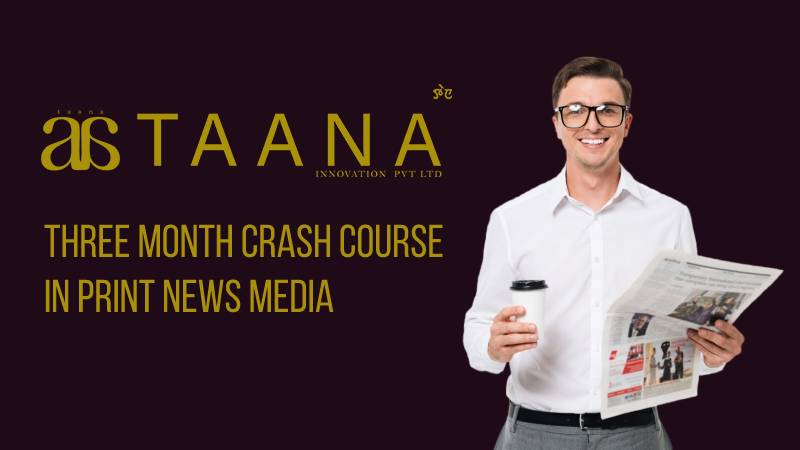Print News Media Course

A three-month crash-course: Print News Media
A course structure developed for Taana Academy of Media, RW3M+C68, Wahengbam Leikai, Sagolband Kangabam Leirak Machin, Imphal, Manipur 795004
The syllabus covers various aspects of journalism, including reporting, writing, editing, and ethics.
Month 1: Foundations of Journalism
Week 1: Introduction to Journalism
- Definition of journalism
- History and evolution of print news media
- Role of print journalism in society
Week 2: News Gathering Techniques
- Basics of news gathering
- Research skills and sources
- Interviewing techniques
Week 3: News Writing Fundamentals
- The structure of news stories
- Writing clear and concise headlines
- Writing leads and inverted pyramid style
Week 4: Reporting on Different Beats
- Understanding different beats (politics, crime, health, etc.)
- Techniques for covering different types of news stories
- Fieldwork and observation skills
Month 2: Advanced Reporting and Writing
Week 5: Investigative Journalism
- Principles of investigative reporting
- Research methods for investigative journalism
- Ethics and legal considerations in investigative reporting
Week 6: Feature Writing
- Types of feature stories (profile, human interest, trend, etc.)
- Techniques for writing compelling feature stories
- Incorporating multimedia elements into feature writing
Week 7: Opinion Writing
- Understanding editorial and opinion writing
- Crafting persuasive arguments
- Balancing objectivity and opinion in editorial writing
Week 8: Copy Editing and Proofreading
- Basics of copy editing and proofreading
- Grammar, punctuation, and style guidelines
- Fact-checking and accuracy in editing
Month 3: Ethics, Management, and Specialization
Week 9: Media Law and Ethics
- Understanding media law in India
- Ethical considerations in journalism
- Handling conflicts of interest and maintaining integrity
Week 10: Newsroom Management
- Structure and workflow in a newsroom
- Time management and prioritization
- Collaboration and communication skills
Week 11: Specialized Reporting and Coverage
- Environmental journalism
- Business and economic reporting
- Technology and science journalism
Week 12: Final Project and Review
- Students work on a comprehensive news story or feature project
- Presentation of projects and peer review
- Reflection on learning outcomes and areas for improvement
Throughout the syllabus, interactive activities, guest lectures from industry professionals, and case studies can be incorporated to provide practical insights into the world of print journalism. Additionally, students should be encouraged to engage with current events and analyse news coverage from leading print publications to develop critical thinking and analytical skills.
